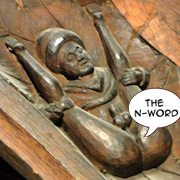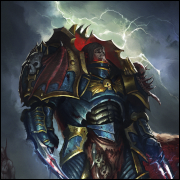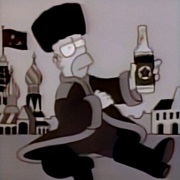|
I finished reading a history of My rear end
|
|
|
|

|
| # ? Apr 26, 2024 02:11 |
|
np19 posted:I just finished The Making of The Atomic Bomb. It was excellent. Are Richard Rhodes other works as good? Also, apparently I got the 25th anniversary and am missing an entire ending chapter that describes what happened after the dropping of the bombs. Yeah read Dark Sun immediately, it's real good.
|
|
|
|
ketchup vs catsup posted:If I want to read 1-5 books about the history of labor unions / the labor movement, what should I read? Hammer and Hoe: Alabama Communists during the Great Depression
|
|
|
|
SubG posted:Wilson's The Thirty Years War: Europe's Tragedy is the current consensus pick for a single volume on the subject. I don't care what people say or think these days, I still think Wedgwood's Thirty Years War is pretty darn good, given that she was writing it during the 30s with the specter of authoritarian governments on the rise in Europe. It's both a solid read and an interesting work to look at to see how historians are influenced by the context they're writing their history.
|
|
|
|
What about the seven years war? I want to read more about Frederick II's military career, most things I read about him are more about his statesman/philosopher side.
|
|
|
|
NUMBER 1 FULCI FAN posted:What about the seven years war? I want to read more about Frederick II's military career, most things I read about him are more about his statesman/philosopher side. I liked Crucible of War though I didn't finish it.
|
|
|
|
NUMBER 1 FULCI FAN posted:What about the seven years war? I want to read more about Frederick II's military career, most things I read about him are more about his statesman/philosopher side. It's not entirely about him, and the book is something like 50 years old now so I'm sure there's more recent work which might revise some of it, but The Politics of the Prussian Army by Gordon A. Craig is a very in-depth look at how the Prussian military was central to Prussian politics and statecraft. I read it about a decade ago and remember it being very good.
|
|
|
|
I just finished The Path to Power and it is fantastic. Strongest recommendation. I am eagerly looking forward to the even crookeder 48 election.
|
|
|
|
I'm trying to pace out the LBJ books because I have the deranged notion that the series might actually be finished in the next couple of years so if I only do one every half year it will all work out.
|
|
|
|
Mantis42 posted:I'm trying to pace out the LBJ books because I have the deranged notion that the series might actually be finished in the next couple of years so if I only do one every half year it will all work out. Yeah, about that. quote:In November 2011, Caro estimated that the fifth and final volume would require another two to three years to write.[11] In March 2013, he affirmed a commitment to completing the series with a fifth volume.[12] As of April 2014, he was continuing to research the book.[13] In a televised interview with C-SPAN in May 2017, Caro confirmed over 400 typed pages as being complete, covering the period 1964Ė65; and that once he completes the section on Johnson's 1965 legislative achievements, he intends to move to Vietnam to continue the writing process.[14] https://en.wikipedia.org/wiki/The_Years_of_Lyndon_Johnson#Book_Five Not sure if Vietnam is even letting Americans in right now, but at best he won't do that until Summer 2021.
|
|
|
|
If he only got ~200 pages of first draft manuscript done in three years heís got a problem with his writing process. I dunno if heís struggling with putting it together from the sources or if heís just not writing that much but thatís beyond slow, even for a dense academic work. Even if you only assume 100 writing days a year (realistic if heís teaching and had a family to go on vacations etc with) thatís still a super slow pace. Fake edit: I looked it up and heís 84. Heís not finishing this book. I dunno if itís writers block or if heís slowing down and having trouble focusing on the writing or what but thatís not a sustainable pace at that age.
|
|
|
|
Cyrano4747 posted:If he only got ~200 pages of first draft manuscript done in three years heís got a problem with his writing process. I dunno if heís struggling with putting it together from the sources or if heís just not writing that much but thatís beyond slow, even for a dense academic work. Even if you only assume 100 writing days a year (realistic if heís teaching and had a family to go on vacations etc with) thatís still a super slow pace. The other four books came out in 1982, 1990, 2002, and 2012, so that tells you something about how long it takes him to write each one.
|
|
|
|
vyelkin posted:The other four books came out in 1982, 1990, 2002, and 2012, so that tells you something about how long it takes him to write each one. Yeah, 8-12 years between books. Weíre at 8 since the last one now. If itís not out 4 years from now or he dies, Iíll agree itís not coming out. Hopefully he has a backup plan if he dies. His wife is his researcher, but I think sheís the same age as him.
|
|
|
|
They can get Brandon Sanderson to finish it
|
|
|
|
Look Sir Droids posted:Yeah, 8-12 years between books. Weíre at 8 since the last one now. If itís not out 4 years from now or he dies, Iíll agree itís not coming out. I'd love to see his research and writing process, because 8-12 years between books is nuts. Now, if his process is that it's like 2 years of preliminary puttering (aka not doing much but you've told your department and publisher you're writing), 2 years of solid research, 2 years of solid writing, and 2 years of fiddling around the edges and working with your editor to get the manuscript publishable, then that's understandable. But that's a pretty leisurely timeline and not exactly working full time on the manuscript.
|
|
|
|
According to a New York Times article from earlier in this year, his current manuscript is ~600 pages long. I have more faith in the old guy finishing his final volume than I do in George RR Martin. e: One issue is that he's too old to understand computers so he just has thousands of paper notes everywhere like a crazy person.
|
|
|
|
Cyrano4747 posted:I'd love to see his research and writing process, because 8-12 years between books is nuts. At least in the last 8 years, he was working on another book. ABOUT his process. https://www.amazon.com/dp/B07L2F9S6H/ref=dp-kindle-redirect?_encoding=UTF8&btkr=1 It's 200 pages lol. I think the gist of it is he's just an absurdly thorough researcher and Lyndon Johnson's career and especially his Presidency was both extensively documented (LBJ wanted it that way and that was the purpose of his presidential library) and, at least when he started these books, had most of the primary players still alive and he interviewed them.
|
|
|
|
Mantis42 posted:I finished Reaganland earlier this week (I highly recommend it) and was wondering if there were any good books about the 80s and 90s American political history. Walter Karp's Liberty Under Siege: 1976-1988 is a pretty fun idiosyncratic take. Steve Kornacki's The Red and the Blue is a more conventional take on 90's politics.
|
|
|
|
whats a good books about the cold war in the 1980s?
|
|
|
|
Dapper_Swindler posted:whats a good books about the cold war in the 1980s?
|
|
|
|
Cold Wars: Asia, the Middle East, Europe by Lorenz M. LŁthi is a survey of the whole period that came out this year, but you might enjoy the chapters on the 80s.
|
|
|
|
Any recommendations for a good book on Europe spanning the first half of the 20th century? Could end at 1939, 45, even 56 or 68. But something that looks at that early chunk of the European century as a bloc of time on its own?
|
|
|
|
Chairman Capone posted:Any recommendations for a good book on Europe spanning the first half of the 20th century? Could end at 1939, 45, even 56 or 68. But something that looks at that early chunk of the European century as a bloc of time on its own?
|
|
|
|
FMguru posted:Ian Kershaw, To Hell and Back: Europe, 1914Ė1949 Awesome. Many thanks.
|
|
|
|
this thread is very dangerous for my "please read this some da-haha you know this is wishful thinking but sure, write it down" list
|
|
|
|
Has anyone in here read Britain's Gulag by Caroline Elkins? It seems like another book in the vein of King Leopold's Ghost, but focused on Kenya. I'm...afraid to read it. e: wait a minute it's also called Imperial Reckoning: The Untold Story of Britain's Gulag in Kenya. Still, question stands!
|
|
|
|
StrixNebulosa posted:Has anyone in here read Britain's Gulag by Caroline Elkins? It seems like another book in the vein of King Leopold's Ghost, but focused on Kenya. I'm...afraid to read it. I read it in grad school, by which I mean I read the most important 10% of it. Your impression is pretty accurate, though the story itself isn't quite as horrifying as what happened in the Congo (1.5 million people tortured in concentration camps to try and maintain colonial rule isn't quite as bad as 10 million people brutally murdered to extract rubber, but it's still really bad!) so I didn't find it quite as overwhelming as King Leopold's Ghost.
|
|
|
|
Black Spartacus: The Epic Life of Toussaint Louverture is one of the most enjoyable books I've read this year. Saw it in the new ebooks through my library and only picked it up because I remembered his name from the Revolutions podcast. If I have one complaint, and it's minor, it's that it didn't go into Toussaint's personal life much at all. I generally don't enjoy reading that sort of stuff, but I came away not knowing as much as I wanted about his relationship with his wife or the mistresses he had throughout Haiti (something the author mentions him having more than once, but nothing more than a mention). I expect there will be many people trying to write a Hamilton-style musical after reading the book.
|
|
|
|
vyelkin posted:I read it in grad school, by which I mean I read the most important 10% of it. Your impression is pretty accurate, though the story itself isn't quite as horrifying as what happened in the Congo (1.5 million people tortured in concentration camps to try and maintain colonial rule isn't quite as bad as 10 million people brutally murdered to extract rubber, but it's still really bad!) so I didn't find it quite as overwhelming as King Leopold's Ghost. I can't find it in myself to be sad that it's not as horrifying as King Leopold's Ghost. Thank you, it's on my list and I'll give it a gander when I'm ready to be mad at Europe again.
|
|
|
|
Mr_Roke posted:Black Spartacus: The Epic Life of Toussaint Louverture is one of the most enjoyable books I've read this year. Saw it in the new ebooks through my library and only picked it up because I remembered his name from the Revolutions podcast. I think the brutality of that revolution puts the breaks on any musical or film...sorry Danny Glover. Does anyone know of any good books on the Indian Rebellion of 1857
|
|
|
|
sbaldrick posted:I think the brutality of that revolution puts the breaks on any musical or film...sorry Danny Glover. The Skull of Alum Bheg: The Life and Death of a Rebel of 1857. It's not a blow by blow history of the whole rebellion, but it does a really good job as an overview of the issues, background, and consequences of it. It's very well written, very readable, and interesting as all hell. It uses the skull of a mutineer that was found in an old pub in England a few years back as the lens through which to examine the rebellion. Basically they start off trying to figure out who this person was, and in doing so dig in on all the context of who the mutineers were, why they rebelled, what the British reaction was, and how it got memorialized by both sides. If I havent' made it clear, it does an excellent job of looking at the rebelling soldiers as more than just an antagonist for the colonial British.
|
|
|
|
I'm stressed and looking for more history books to put on my to-read list and so I'm googling "best history books all time" and stuff like that and google wants to make fun of me https://bookauthority.org/books/best-history-books  
|
|
|
|
StrixNebulosa posted:I'm stressed and looking for more history books to put on my to-read list and so I'm googling "best history books all time" and stuff like that and google wants to make fun of me Never trust a google search for history recommendations, it's a lesson I've learned the hard way so many times. Honestly, what I like doing if I'm just looking for like, any history book to read for fun is to look on the goodreads list of microhistories. There's a lot of really interesting books on some real niche topics, always cheers me up.
|
|
|
|
My personal go-to, outside of this thread, is /r/askahistorian's wiki.
|
|
|
|
Aerdan posted:My personal go-to, outside of this thread, is /r/askahistorian's wiki. I'd never heard of this list and now I have a giant to-read list, my god. Thank you.
|
|
|
|
quote:Russia Not sold.
|
|
|
|
Most of their Russia list is really bad, but I remember having this exact discussion in this thread before. e: I shouldn't say most. Some of their Russia list is really bad, and the list isn't that long.
|
|
|
|
Wow, wonder why there were breadlines in 1992. Guess they should have stuck with whatever system they had back when there weren't breadlines.
|
|
|
|
Since it's come up again, I'll just quote what I wrote last time we discussed Pipes in this thread. The long and short of it is that whoever wrote that reddit list and summarized Pipes as "Pipes has a somewhat conservative take on events, but the writing clearly quarantines his opinion away from his facts" is 100% wrong.vyelkin posted:
|
|
|
|

|
| # ? Apr 26, 2024 02:11 |
|
I'm looking for something that describes on the day to day life and operations aboard a modern Navy ship. It's okay if it's not 100% about the crew but I'd like it to be as focused as possible on them.
|
|
|






 Yes, it's like a lava lamp.
Yes, it's like a lava lamp.


































